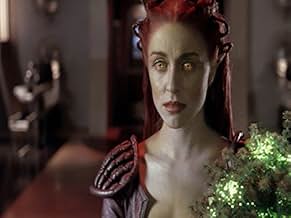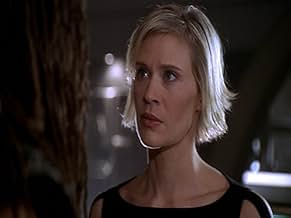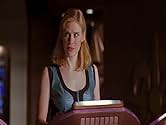Andromeda is yet another tragic example of what happens when networks and studios assume too much control over a project and sideline the real creative forces that had initially made it special.
The universe that Andromeda introduces us to was not necessarily original in the realm of sci fi, but it had enough fresh new elements to make it immersive and interesting, drawing its audience in to an experience that was different from every other genre show that was on at the same time, while remaining just as compelling.
Standing out from this vivid backdrop was a caste of funny, relatable characters whom the audience couldn't help but like, often subverting the traditional character tropes found in science fiction. This was especially true of the quirky, sarcastic Artificial Intelligence played impeccably by Lexa Doig, and the character of Tyr Anasazi, who remains to this day a unique and indelible merger of the anti-hero and the warrior poet.
The narrative that began to spin itself around these characters was layered and multifaceted, providing the audience with both the simplicity of episodic television as well as ever more depth and mystery to unpack, both concerning the characters themselves and the events that were beginning to take shape around them. By the second season, it really felt as though Andromeda was going to be the first truly great example of the still-new format of novelized television in science fiction, with a broad, sweeping narrative unfolding across multiple seasons.
And then the network decided that this approach made the show too inaccessible, contemptuously underestimating the intelligence of their own audience in the process, and demanded a return to a more episodic format. In protest, Robert Hewitt Wolfe left the project, and all of the careful, methodical work he had done to craft his grand narrative was scrapped.
To this day, I believe this could have been one of the greatest science fiction stories ever told on television, easily on a level with Battlestar Galactica or Star Trek at its best. As is so often the case in television, the disappointment that Andromeda ended up becoming can be laid entirely at the feet of meddling network executives too shortsighted to just leave well enough alone.





























